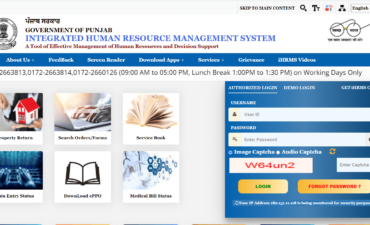Introduction
Tax credits are essential components of any tax system, designed to incentivize specific behaviors, support specific demographics, and promote economic growth. Unlike tax deductions, which reduce taxable income, tax credits directly reduce the amount of taxes owed. They play a crucial role in the financial landscape, benefiting individuals, families, businesses, and the economy as a whole. In this comprehensive guide, we will explore what tax credits are, the different types available, eligibility criteria, and strategies to maximize their benefits.
I. Understanding Tax Credits
1.1 What are Tax Credits?
A tax credit is a dollar-for-dollar reduction in the actual amount of tax owed. Unlike deductions, which lower your taxable income, credits provide direct relief from the tax burden. For example, if you have a $2,000 tax credit and owe $6,000 in taxes, the credit reduces your tax liability to $4,000.
1.2 Types of Tax Credits
There are several types of tax credits, broadly categorized into:
a) Refundable Tax Credits: These credits not only reduce your tax liability but can also lead to a tax refund if the credit exceeds the tax owed.
b) Non-Refundable Tax Credits: These credits can reduce your tax liability to zero, but any excess credit is not refunded; it is simply forfeited.
II. Personal Tax Credits
2.1 Child Tax Credit
The Child Tax Credit is one of the most well-known tax credits aimed at supporting families with dependent children. It provides eligible taxpayers with a credit for each qualifying child, with certain limitations based on income.
2.2 Earned Income Tax Credit (EITC)
The Earned Income Tax Credit is designed to help low-to-moderate-income individuals and families. It is refundable and varies based on earned income and the number of qualifying children.
2.3 Education Credits
Education tax credits, such as the American Opportunity Credit and the Lifetime Learning Credit, assist taxpayers with qualified educational expenses for themselves or eligible dependents.
2.4 Adoption Tax Credit
The Adoption Tax Credit supports families that have adopted a child, providing financial assistance to help offset the costs associated with adoption.
III. Business Tax Credits
3.1 Research and Development (R&D) Tax Credit
The R&D Tax Credit encourages businesses to invest in research and development activities, fostering innovation and competitiveness.
3.2 Small Business Health Care Tax Credit
This credit helps small businesses and tax-exempt organizations offset the cost of providing health insurance to their employees.
3.3 Work Opportunity Tax Credit (WOTC)
The WOTC incentivizes employers to hire individuals from targeted groups facing barriers to employment.
IV. Housing and Energy Tax Credits
4.1 Mortgage Interest Credit (MCC)
The MCC assists lower-to-moderate-income homeowners by reducing their federal income tax liability through a percentage of mortgage interest paid.
4.2 Residential Energy Efficient Property (REEP) Credit
The REEP Credit encourages homeowners to invest in renewable energy systems, such as solar panels or geothermal heat pumps.
V. Maximizing Tax Credits
5.1 Understand Eligibility and Requirements
Being aware of the eligibility criteria for various tax credits is crucial to ensure you qualify and can maximize their benefits.
5.2 Keep Accurate Records
Maintain comprehensive records of expenses and activities related to tax credits, as they may be required for verification and documentation.
5.3 Plan Ahead
Identify potential tax credits that apply to your situation, and plan your financial decisions accordingly to optimize your credits.
5.4 Utilize Tax Preparation Software
Tax preparation software can help you identify eligible tax credits and ensure accurate calculations, increasing the chances of maximizing your benefits.
5.5 Seek Professional Advice
When in doubt or dealing with complex tax situations, consult a tax professional who can provide personalized guidance and help you optimize your tax credits.
Conclusion
Tax credits are valuable tools that can significantly reduce tax liabilities for individuals and businesses while supporting specific policy goals. Understanding the various tax credits available, their eligibility criteria, and how to maximize their benefits can lead to substantial savings and financial advantages. Stay informed, plan wisely, and leverage the power of tax credits to enhance your financial well-being and contribute to a thriving economy.











